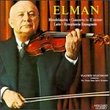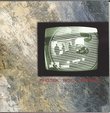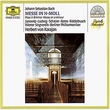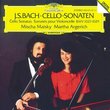| All Artists: Franz [Vienna] Schubert, Claudio Abbado, Chamber Orchestra of Europe Title: Franz Schubert: 8 Symphonies and Rosamunde/Grand Duo Members Wishing: 0 Total Copies: 0 Label: Polygram Int'l Release Date: 10/5/1988 Album Type: Box set, Import Genre: Classical Styles: Opera & Classical Vocal, Symphonies Number of Discs: 5 SwapaCD Credits: 5 UPC: 028942365124 |
Search - Franz [Vienna] Schubert, Claudio Abbado, Chamber Orchestra of Europe :: Franz Schubert: 8 Symphonies and Rosamunde/Grand Duo
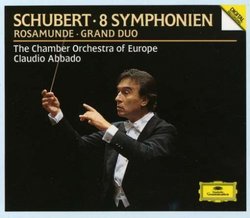 | Franz [Vienna] Schubert, Claudio Abbado, Chamber Orchestra of Europe Franz Schubert: 8 Symphonies and Rosamunde/Grand Duo Genre: Classical
This set has received very high praise in some quarters, as much for Claudio Abbado's reference to Schubert's original manuscripts as for his own interpretations. In truth, the textural adjustments are very minor (largely ... more » |
Larger Image |
CD DetailsSynopsis
Amazon.com This set has received very high praise in some quarters, as much for Claudio Abbado's reference to Schubert's original manuscripts as for his own interpretations. In truth, the textural adjustments are very minor (largely the result of editing by Brahms prior to publication in the 19th century--and what a fine editor he was!). More to the point, the playing is really very good, but Abbado's contribution strikes me as dull and dutiful rather than inspired. This is, of course, very much a matter of personal taste. It's your call. --David Hurwitz Similar CDs
|
CD ReviewsOne Of The Definitive Schubert Symphony Cycles John Kwok | New York, NY USA | 02/10/2002 (5 out of 5 stars) "Claudio Abbado's Schubert symphony cycle has received considerable praise from music critics as one of the best currently available. These are elegant performances, replete with much warmth and passion from the Chamber Orchestra of Europe. To my amazement, Abbado emulates Nikolaus Harnoncourt in his own bit of musical archaeology, going back to Schubert's original scores to get a sense of the composer's intentions for performing these symphonies. Abbado's tempi are brisk, but aren't too swift. The finest performance is that of the great 9th (or 8th) symphony; but the others are fine too. Without question, these recordings surely rank alongside Abbado's Berlin Philharmonic Beethoven symphony cycle as among his finest in the realm of symphonic music. Anyone in search of a definitive Schubert symphony cycle will not be disappointed with Abbado's interpretations. It certainly ranks alongside those from Karl Bohm, Nikolaus Harnoncourt, and perhaps, Sir Colin Davis." Abbado's Complete Schubert Symphonies Paul S. Rottenberg | Ft. Lauderdale, FL | 09/05/2008 (5 out of 5 stars) "
Abbado's Complete Schubert Symphonies This set was recorded in the 1980s but is now out of print in the U.S. It is available on Amazon Marketplace on five used discs, many at very attractive prices. In addition, each disc is available as a download (though with some sound compression) through both Amazon and at DG's website, but you miss the informative notes. I'd first like to note the high quality of the playing of the youthful Chamber Orchestra of Europe. Claudio Abbado's decision to use a chamber orchestra here is for the same reasons that he cut back on the size of the Berlin Philharmonic in his more recent and critically acclaimed set of the Beethoven Symphonies. This is the size and sound of a late-eighteenth and early-nineteenth century orchestra with its leaner textures and natural highlighting of inner voices, as well its brisker tempos. The youth of this orchestra is especially helpful here since they readily respond to Abbado's approach to Schubert's Symphonies as music of great freshness, naïve charm, and melodic, harmonic, and rhythmic genus. Just listen to the finale of Symphony No. 2, with its ingratiating, skipping dactylic rhythm and you'll see what I mean. You won't be able to get it out of your head. There are many examples of the sheer excellence of playing, of tone quality, and of ensemble here; COE consistently hits each note right in the center, displaying the disciplined technique of an experienced orchestra, but that is used as a means to an end, which is to engage with the mind of the composer and his music in an informed and joyful way. For all of this, we must note the inspired direction of Maestro Abbado, who neither forces this music nor holds back anything, but allows all to flow naturally in felicitous ways which will put a smile on the most demanding listener. It's also valuable to have these recordings of the original scores without any of the well-meaning attempts of editors such as Brahms (however logical some of his changes may have originally seemed) to "improve" on Schubert's abilities. All of these works emerge as fresh and new in ways that bring us closer to a composer who has often been considered lacking the technique of say, Beethoven, revealing to us a composer who is different from, but not inferior to his great contemporary. Beethoven said that Czerny had his head and that Schubert had his heart, but Beethoven mainly knew Schubert's songs, not his great B Minor Symphony fragment or the "Death and the Maiden" Quartet, among many other masterpieces written at that late period of Schubert's career. Imagine if we still had to listen to Bruckner in the editions of his well-wishers or listen to Mussorgsky in Rimsky's re-orchestrations; in both of these cases, the editor "toned down" anything thought "difficult" or too novel for the large public, which may have helped introduce the composer to listeners in the nineteenth century, but which is not only unnecessary now, but may present an erroneous image of the composer. There are many instances in these recordings in which Schubert comes forward more in his own voice than in other performances, particularly in Symphonies 4, 8, and 9, but in all the earlier works, particularly in Symphonies 1, 2, and 6, there is an added quality of immediacy which reveals them to be better works than one may have realized. Certainly, there are excellent recordings of these symphonies elsewhere, both in complete sets and in separate recordings, such as those by Harnoncourt , Marriner (both complete), Szell (8 & 9), Carlos Kleiber (3 & 8), and Bruno Weill (8 & 9), and Franz Bruggen, the last two on period instruments, but you'll find no better complete set. Harnoncourt is about in the same class as Abbado, but not superior. I'd suggest that listeners acquire either Abbabo or Harnoncourt for a complete set, and supplement it with Marriner's recording of the Brian Newbould edition of the B Minor Symphony and Riccardo Chailly's performance of the sketches for a "Symphony No. 10" which Luciano Berio completed in a version he calls "Rendering for Orchestra," available on a Decca recording of Berio's Orchestral Transcriptions. " |

 Track Listings (8) - Disc #1
Track Listings (8) - Disc #1